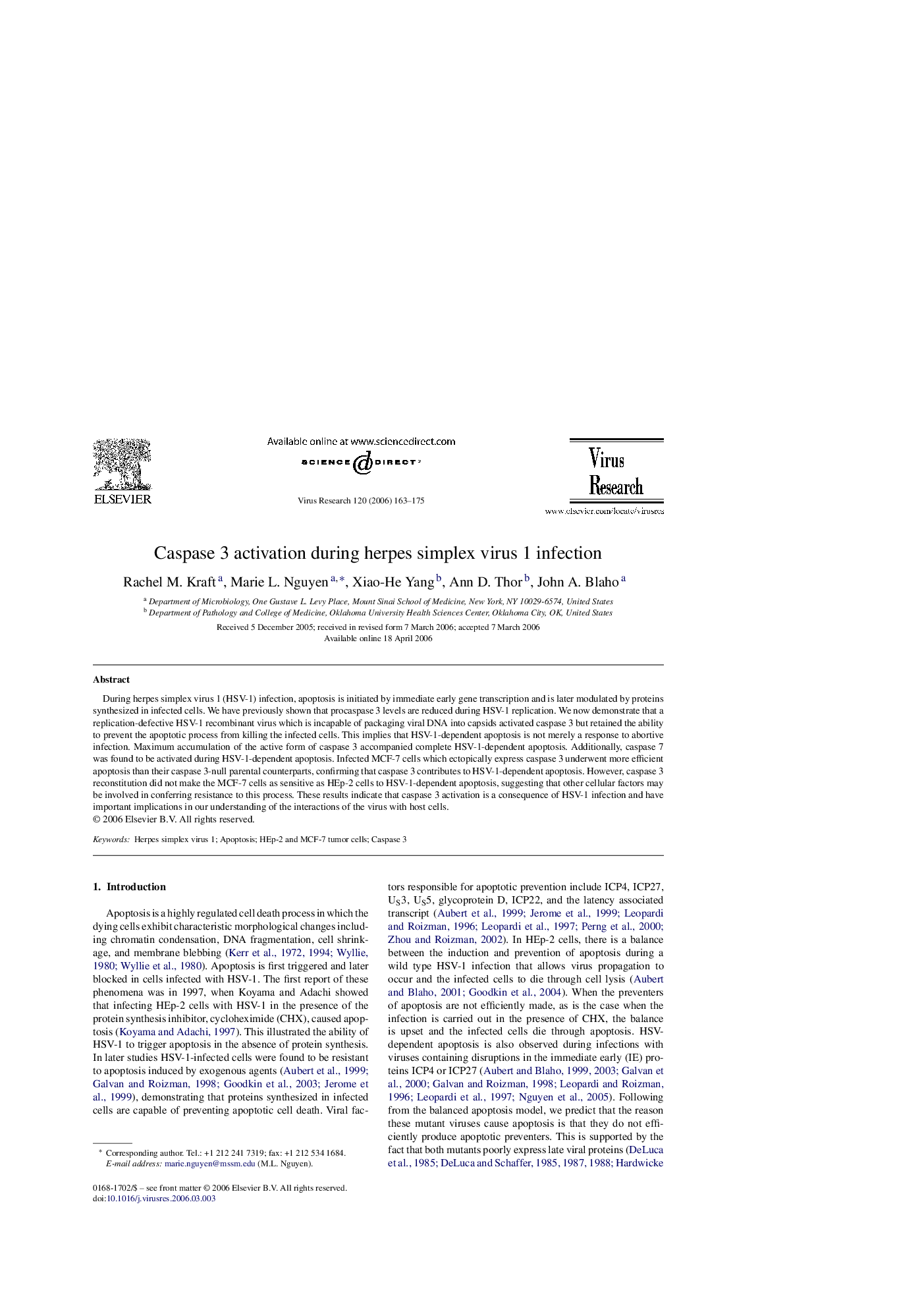| Article ID | Journal | Published Year | Pages | File Type |
|---|---|---|---|---|
| 3431227 | Virus Research | 2006 | 13 Pages |
During herpes simplex virus 1 (HSV-1) infection, apoptosis is initiated by immediate early gene transcription and is later modulated by proteins synthesized in infected cells. We have previously shown that procaspase 3 levels are reduced during HSV-1 replication. We now demonstrate that a replication-defective HSV-1 recombinant virus which is incapable of packaging viral DNA into capsids activated caspase 3 but retained the ability to prevent the apoptotic process from killing the infected cells. This implies that HSV-1-dependent apoptosis is not merely a response to abortive infection. Maximum accumulation of the active form of caspase 3 accompanied complete HSV-1-dependent apoptosis. Additionally, caspase 7 was found to be activated during HSV-1-dependent apoptosis. Infected MCF-7 cells which ectopically express caspase 3 underwent more efficient apoptosis than their caspase 3-null parental counterparts, confirming that caspase 3 contributes to HSV-1-dependent apoptosis. However, caspase 3 reconstitution did not make the MCF-7 cells as sensitive as HEp-2 cells to HSV-1-dependent apoptosis, suggesting that other cellular factors may be involved in conferring resistance to this process. These results indicate that caspase 3 activation is a consequence of HSV-1 infection and have important implications in our understanding of the interactions of the virus with host cells.
